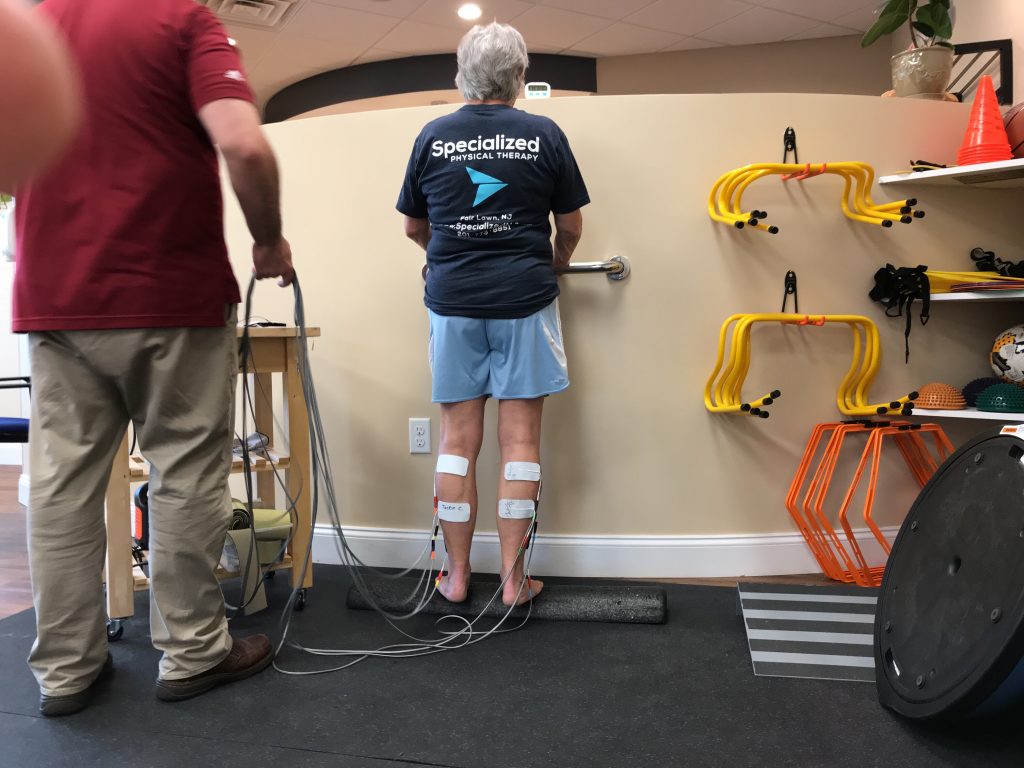Multiple Sclerosis (MS) targets the central nervous system (i.e. the brain and spinal cord). Its debilitative effects lead to muscle pain, balance and coordination issues, and cognitive problems. In severe cases, MS can turn into a lifelong disability without treatment.
How does Multiple Sclerosis physical therapy help? Visit our facility to receive personalized physical therapy for multiple sclerosis leading to complete rehabilitation. Our integrated manual techniques, functional electrical stimulation, and balance/strength training can pave the way for recovery.
Overview: Multiple Sclerosis
Multiple Sclerosis (MS) refers to a chronic autoimmune disease that affects the myelin sheaths that cover nerve endings within the central nervous system. These insulated sheaths are responsible for transmitting neural signals from the brain to other parts of the body.
Genetic and environmental factors can trigger an overactive autoimmune response against the CNS. They cause inflammation inside the brain and spine, which damages and deteriorates myelin sheaths. Without myelin, sclerotic lesions and scar tissue may form within the targeted area.
As a result, our neural pathways get disrupted, making muscle coordination and stimuli response ineffective. Initial signs include muscle spasms, pain, stiffness, and inability to move certain parts of the body.
Early Multiple Sclerosis physical therapy intervention can mitigate the risk of complete disability and paralysis.
Physical therapy for Multiple Sclerosis can reduce the severity of physical symptoms and facilitate healthy cognitive development and muscle control. In turn, this enables MS patients to engage in activities of daily lives independently.
Common Symptoms of MS
Early symptoms of Multiple Sclerosis vary from patient to patient. They range from mild to severe, depending on individual conditions.
Common symptoms of MS include:
- Muscle stiffness
- Impaired hearing/vision
- Painful muscle spasms
- Difficulty with balance, unsteady gait, and lack of coordination
- Numbness and tingling sensation
- Generalized weakness and fatigue
- Breathing issues
- Urinary problems
- Cognitive issues
- Slurred speech
Multiple Sclerosis Causes
The main cause of multiple sclerosis remains unknown. Scientists and medical researchers are still determining the main reason for myelin breakdown and what causes a severe autoimmune response in some people.
However, certain genetic and environmental variables might increase the risk of MS.
Possible Multiple Sclerosis Causes Include:
- Age. Early signs are prevalent in adults aged 20-40 compared to younger people
- Genes. Individuals are susceptible to MS if one of their parents or siblings has the condition.
- Autoimmune disorders. People with preexisting autoimmune conditions (i.e. diabetes, thyroid disease, anemia, and psoriasis)are at higher risk.
- Infections. Certain diseases and infections can weaken the immune system and trigger an autoimmune response that causes MS.
- Vitamin D deficiency. Malnutrition and limited exposure to direct sunlight can affect your health.
Besides this, your race and climate can also increase or decrease the chances of developing MS.
Mutliple Sclerosis Diagnosis Criteria
Many symptoms of multiple sclerosis overlap with other known diseases or are too nonspecific for doctors to determine a probable cause. These factors make early diagnosis difficult.
Nevertheless, recent developments in lab tests and advanced imaging techniques (i.e. MRI and CT scans) help detect even minute lesions inside the brain. Diagnostic practices like lumbar puncture and spinal tap are also beneficial for ruling out other diseases.
MS physical therapy begins with a detailed physical assessment to observe how the condition restricts movement and alters your activities of daily living (ADL). We ask you a series of questions to understand pain patterns, intensity, and impairments (i.e. lack of coordination, blurred vision, and loss of sensation). Additionally, our physical therapists will observe your gait and balance when you walk, climb, and stand.
The initial assessment is followed by a personalized rehabilitation program based on MS physical therapy. We incorporate balance, coordination exercises, and strength training utilizing various techniques, including the Neubie, into patients’ programs.
Mulitple Sclerosis Treatment
We create customized physical therapy for MS rehabilitation programs that align with the severity of your symptoms and movement goals. It includes a combination of onsite and home-based physiotherapy exercises. Each technique focuses on specific impairments so that MS patients can live independently.
Our Multiple Sclerosis physical therapy includes muscle stretching and Multiple Sclerosis physical therapy exercises to restore lost range of motion and improve motor skills. Other exercises are targeted towards pain relief and reduction of muscle spasms.
Additionally, we work on cardiovascular training utilizing treadmills, NUSTEP, the Neubie Neufit system, and recumbent bikes to promote lung and heart health. People struggling with balance and coordination will receive instructions on MS physical therapy for balance. The frequency of these exercises varies from patient to patient. People with severe symptoms might need to perform them daily, while others can practice less frequently.

We take great pride in being the only physical therapy facility in New Jersey that offers the Neubie / Neufit treatment for Multiple Sclerosis. Our Neubie machine supports neurological development and functioning to promote optimal strength, balance, and motor control as a vital part of our physical therapy for MS treatment program.
Get in touch, contact us here or call 201-773-8851 to schedule a consultation session to receive personalized physical therapy for Multiple Sclerosis.
Are you looking to refer a friend or loved one? Have them check out all our physical therapy services to see how Specialized Physical Therapy NJ can best help them.

